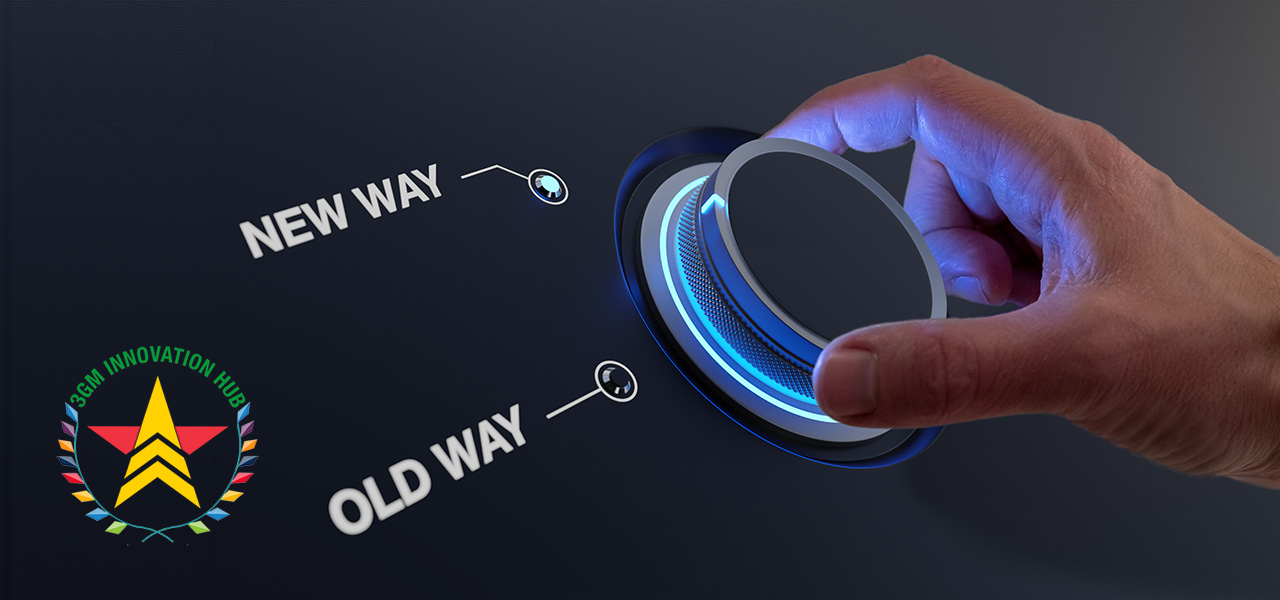
Master English the Japanese Way
Global Skills, Rooted in Cultural Values
At Immersive DX Business English, we integrate Japan's core cultural values—monozukuri 物作り (craftsmanship), kizuna 絆 (human bonds), and mottainai 勿体無い (avoiding waste)—alongside other principles such as omotenashi おもてなし (hospitality) and kaizen 改善 (continuous improvement). These values are seamlessly woven into advanced English education, empowering learners to excel on the global stage while preserving and showcasing Japan's unique strengths. Explore our course syllabi today.
Creative English for Young Learners

Creative English for Young Learners
Building Language, Inspiring Futures.Program Overview
Montessori-Inspired Approach: Encourages creativity and holistic learning in an engaging and supportive environment, supplemented with Jolly Phonics and Jolly Grammar materials and trained teachers.
Duration: Flexible Format: Online or Hybrid
Target Audience: Young learners (ages 4–12) eager to explore creativity, inclusivity, and sustainability through English.
Fee: Group Lessons: 2,200 JPY/hour Private Lessons: 3,000 JPY/hour Community Learning Sessions: 500 JPY/hour for schools, NPOs, and community organizations
Examples of Customizable Modules
Week 1:
Sounds and Silliness Focus: Phonics, rhyming words, and simple sentence construction.
- Singing phonics songs.
- Rhyming word games (e.g., “cat-bat-hat”).
- Role-playing scenarios like shopping or visiting a zoo.
- Total Physical Response (TPR) games (e.g., “Simon Says”).
- Acting out stories or simple scenarios.
- Creating a group story with learner input.
Week 3: My Day Focus: Morning and evening routines, feelings, and time expressions.
- Vocabulary matching games (“brush my teeth,” “take a bath”).
- Drawing and describing their daily routine.
- Practice conversations (e.g., “What time do you wake up?”).
Focus: Exploring home, school, and community vocabulary.
- Treasure hunts with labels for household items.
- Interactive map-building activities for their school or neighborhood.
- Practicing dialogues like asking for directions or borrowing items.
Week 5: Crafting Conversations
Focus: Basic conversational skills with creative prompts.
- Making puppets for role-play conversations.
- Designing “conversation cards” with fun topics.
- Practicing polite phrases like “please,” “thank you,” and “excuse me.”
- Creating collages to describe with learned vocabulary.
- Writing simple captions for their drawings.
- Storyboarding simple scenes (e.g., “A trip to the park”).
Week 7: Feelings and Faces
- Emoji-based matching games for emotions.
- Drawing emotion faces and sharing how they feel.
- Acting out different emotions for group guessing.
Focus: Practicing empathy and teamwork.
- Story-based problem-solving activities (e.g., “What would you do?”).
- Cooperative games to practice sharing and turn-taking.
- Group discussions on helping friends or family..
Week 9: Telling Stories
Focus: Understanding and retelling simple stories.
- Listening to short illustrated stories and answering questions.
- Sequencing story pictures to retell the plot.
- Acting out favorite parts of the story.
Focus: Developing their storytelling abilities.
- Guided group storytelling (teacher starts a story, learners continue it).
- Drawing and describing their own short stories.
- Sharing their stories with peers.
Week 11: Language Festival
Focus: Showcasing what learners have achieved.
- Preparing a simple group performance (e.g., a song, skit, or story).
- Displaying their artwork and projects from previous modules.
- Practicing and performing their best conversations.
Focus: Reflecting on learning and fostering a love for English.
- A language party with games, songs, and storytelling.
- Giving each learner a personalized “Language Superstar” certificate.
- Reflecting on favorite activities and what they’ve learned.
Ethical Eikaiwa: 3GM Edition

Ethical Eikaiwa: 3GM Edition
Learn English, Empower Change.Duration: Flexible
Format: Online or Hybrid
Target Audience: Japanese learners passionate about sustainability and ethical innovation.
Fee:
Group Lessons: 3,000 JPY/hour
Private Lessons: 4,000 JPY/hour
One Coin Ethical English: 500 JPY/hour for NPOs and community organizations
Examples of Customizable Modules
👉🖱️ Module 1: Building a Better World with Ethical Eikaiwa
Objective:
Understand the environmental and societal impact of unsustainable practices and how the 3GM Initiative promotes ethical innovation using blockchain and AI.
Activities:
1. Case Study Exploration:
2. Advocacy Role-Play:
3. Writing Exercise:
Integrated Values:
Key Learning Points:
1. Recognize the environmental and societal impact of unsustainable resource extraction.
2. Understand 3GM’s approach to ethical innovation using blockchain and AI.
3. Explore Japan’s potential leadership role in advancing global sustainability efforts.
Activities:
1. Interactive Discussion:
Role-Playing Scenario:
Target Vocabulary:
Target Phrases:
Register:
Informative and conversational, ensuring accessibility for learners while introducing key concepts clearly.
Develop persuasive communication skills to advocate for ethical practices.
Activities:
Mini Presentation: Prepare a short advocacy speech about ending Galamsey.
Role-Playing Scenario: Pitch a proposal to raise awareness about the 3GM Initiative to stakeholders.
Cultural Value:
Key Learning Points:
Target Vocabulary:
Target Phrases:
Register:
Persuasive and respectful, suitable for advocacy and awareness-raising contexts.
Understand blockchain and AI as tools for sustainability, simplified for practical understanding.
Activities:
Cultural Value:
Key Learning Points:
Activity:
Role-Playing Scenario:
Target Vocabulary:
Target Phrases:
Register: Semi-formal and explanatory, simplifying technical concepts for practical understanding.
Enhance cross-cultural communication skills to foster global collaborations.
Activities:
Cultural Value:
Enhance cross-cultural communication skills to build and strengthen global partnerships, leveraging Japan’s unique cultural values.
Activities:
Cultural Value:
Design ethical marketing campaigns that reflect global relevance and Japanese values.
Activities:
Cultural Value:
Activities:
Cultural Value:
Target Vocabulary:
Target Phrases:
Register:
Persuasive and creative, designed for effective communication with diverse audiences.
Master presentation techniques to deliver clear and impactful pitches.
Activities:
Cultural Value:
Activities:
- Presentation Crafting Workshop: Create a structured presentation for an ethical project, such as the 3GM Initiative, focusing on logical flow and clear messaging.
- Q&A Practice: Simulate responding to stakeholder questions with confidence and cultural sensitivity.
- Feedback Circles: Participants deliver their presentations and receive constructive feedback from peers and mentors.
- Role-Playing Scenario: You are presenting the progress of the 3GM Initiative to stakeholders, focusing on its impact and sustainability. Use phrases like "As this slide demonstrates..." and "Our proposal addresses the following challenges..."
Cultural Value:
Target Vocabulary:
Target Phrases:
Register:
Formal and engaging, emphasizing clarity and professionalism.
Professional DX Business English Communication Program

Professional DX Business English Communication Program
Enhancing Global Communication for DX ProfessionalsDuration: Flexible
Format: Online or Group Sessions
Target Audience:
Japanese young and senior professionals, career shifters, and entrepreneurs preparing for international roles.
Fee:
Private Lessons: 4,000 JPY/hour
Group Lessons: 3,000 JPY/hour
Examples of Customizable Modules
Define career and skill development goals relevant to global roles.
Activities:
Integrated Values:
Setting Personal Objectives: Clarify career and skill development goals relevant to international roles.
Japan’s Global Influence: Understand Japan’s key contributions and opportunities in global business, such as sustainability, technology, and innovation.
Action Planning: Outline a step-by-step plan to align your English learning with your professional ambitions.
Activity:
Target Vocabulary:
Target Phrases:
Register:
Formal and professional tone for goal-setting discussions and written statements.
Develop skills to write concise, professional emails and detailed reports tailored to the needs of Japanese professionals in global business contexts.
Activities:
1. Email Drafting Workshop:
- Requesting a meeting.
- Following up on a task.
- Responding to an inquiry.
2. Report Writing Practice:
- Executive summaries.
- Key points and recommendations.
- Polite and formal conclusions.
Cultural Value:
Target Vocabulary:
Target Phrases:
Register:
Polite and formal, emphasizing clarity and respect in written communication.
Build and deliver clear, impactful presentations.
Activities:
Integrated Values:
Presentation Fundamentals: Learn how to organize and deliver presentations that emphasize clarity and logical flow.
Attention to Detail: Incorporate Japan’s commitment to quality and precision into your slides and delivery.
Practice Sessions: Present on topics relevant to your industry, such as introducing a new product or pitching a project.
Activity:
Target Vocabulary:
Target Phrases:
Register:
Formal and confident, maintaining logical flow and clarity throughout the presentation.
Understand how digital transformation (DX) tools like blockchain and AI are applied in industries such as manufacturing, supply chain, and smart technologies in Japan.
Activities:
- DX Brainstorming Session: Identify potential applications of blockchain and AI in Japanese industries, focusing on practical solutions.
Case Study Discussion: Analyze real-world examples of DX tools transforming Japanese businesses, such as automated supply chains or predictive AI for manufacturing.
Simplified Technical Presentation: Explain a DX tool to a non-technical audience in a simulated meeting.
Role-Playing Scenario: You are a team member explaining how blockchain technology can enhance supply chain transparency in your company. Use simple and clear language to educate colleagues.
Cultural Value:
Activity:
- DX Brainstorming Session: Participants explore how tools like blockchain or AI can be applied to their industries, with simple examples.
- Role-Playing Scenario: You are explaining the concept of AI to a colleague unfamiliar with it, focusing on its relevance to your field. Use simplified terms like "AI helps us analyze data to...".
Target Vocabulary:
Target Phrases:
Register:
Semi-formal and informative, suitable for explaining technical concepts in business contexts.
Develop the confidence to actively participate in and lead group discussions while engaging peers in meaningful conversations.
Activities:
- Discussion Circles: Take turns leading a discussion on a business topic, focusing on encouraging participation and managing differing opinions.
- Networking Practice: Simulate networking events where participants practice small talk and business introductions with international peers.
- Team Collaboration Workshop: Work in groups to brainstorm solutions to real-world challenges, emphasizing effective communication and teamwork.
Cultural Value:
Navigate group settings with confidence and clarity.
Activities:
- Discussion Circles: Take turns leading a discussion on a business topic.
- Networking Simulations: Practice initiating and maintaining conversations in professional networking settings.
- Feedback Workshop: Exchange feedback on discussion leadership and participation.
Activity:
Target Vocabulary:
Target Phrases:
Register: Interactive and collaborative, encouraging open dialogue and mutual respect in discussions.
Japanese Strengths: Leverage cultural assets like omotenashi おもてなし (hospitality) and kizuna 絆 (human connections) to build trust and rapport.
Role-Playing Scenarios: Practice real-life cross-cultural situations, such as conducting meetings or resolving conflicts in a multicultural environment.
Activity:
Cross-Cultural Scenario Analysis: Participants analyze scenarios where cultural differences could cause misunderstandings and propose solutions.
Role-Playing Scenario: You are part of a global team discussing project timelines. Practice resolving a misunderstanding about deadlines using clear and respectful language like "Let’s clarify the expected delivery date for everyone."
Target Vocabulary:
Cultural awareness, negotiation, etiquette, active listening, conflict resolution.
Target Phrases:
Register:
Polite and adaptable, with a focus on bridging cultural differences and fostering understanding.
Global Executive DX Business English Communication Program

Global Executive DX Business English Communication Program
Empowering Leaders for Global SustainabilityDuration: 10 Modules, 10 Weeks
Time Commitment: 2 Hour Per Session, 2 Sessions Per Week
Format: Hybrid (Online and In-Person Sessions)
Target Audience: Japanese young and senior professionals, entrepreneurs, and global leaders seeking to enhance English communication and sustainability expertise.
Certification: Global Executive DX Communication Program
Fee:150,000JPY
Sample Syllabus
Align career goals with global trends and sustainability.
Activity: SWOT Analysis to identify professional strengths and growth areas.
Cultural Value: Kaizen (改善)—Focus on continuous personal and professional improvement.
Target Vocabulary: Strategic planning, global competitiveness, innovation.
Register: Formal and professional. Set clear objectives aligned with Japan’s global business expansion trends.
Program Overview: Understand the course structure, schedule, and expectations.
Personal Goal Setting: Define your career and skill development goals, and plan actionable steps to achieve them.
Understanding Japanese Trends: Explore challenges and opportunities Japanese businesses face in global markets, and identify how your role can contribute.
The goal for this Module is to establish a strong foundation for your learning journey and ensure your objectives align with real-world trends.
Activity:
- SWOT Analysis Workshop: Participants perform a SWOT analysis of their own professional skills and align them with global business opportunities.
- Role-Playing Scenario: You are presenting your personal career goals to a mentor during a global leadership workshop. Practice using phrases like "My objective is to leverage my skills in…".
Strategic planning, global competitiveness, innovation, market trends, actionable goals.
Target Phrases:
Register: Formal and professional, suitable for strategic discussions and goal-setting.
Write polished emails and negotiate effectively.
Activity: Review emails for real-world scenarios like follow-ups or client inquiries.
Cultural Value: Meiyo (名誉)—Maintain professionalism and honor in written communication.
Target Vocabulary: Proposal, clarification, formal tone, stakeholder.
Activity:
Email Writing Challenge: Participants draft formal emails for common business scenarios, such as negotiating a deadline or responding to a proposal.
Role-Playing Scenario: You are a project manager responding to a client’s inquiry about a delayed project. Use polite and professional language to maintain rapport.
Target Vocabulary:
Target Phrases:
Register:
Polished and formal, emphasizing professionalism and respect in communication.
Understand blockchain and AI in Japanese industries.
Cultural Value:
Activity:
DX Technology Brainstorm: Participants work in teams to identify potential applications of blockchain and AI in their industries.
- You are explaining the benefits of blockchain technology to your executive team, focusing on how it enhances transparency and efficiency. Use simple, clear language.
- Blockchain, AI, data analytics, transparency, automation, digital transformation.
- "Blockchain can improve transparency in supply chains by..."
- "AI allows us to analyze market trends more efficiently by..."
- "Digital transformation is vital for maintaining competitiveness in... "
- Semi-formal and technical, appropriate for discussing innovations in a business context.
Activities:
- Group Analysis: Identify challenges and propose actionable solutions to improve 3GM’s global reach.
- Presentation Practice: Deliver findings and recommendations in a professional setting.
- Impact Mapping: Connect 3GM’s practices to global SDGs (Sustainable Development Goals).
- Seijitsu 誠実 (Sincerity): Encourage genuine, heartfelt advocacy for ethical practices.
- Wa 和 (Harmony): Promote balanced teamwork during analysis and presentations.
- Understanding 3GM: Explore how 3GM tackles illegal mining and promotes ethical practices using blockchain and AI.
- Environmental and Social Impact: Discuss how ethical mining contributes to global sustainability.
- Team Analysis: Work in groups to identify challenges and propose solutions for scaling 3GM’s impact.
- Presentation Practice: Deliver findings in a professional presentation format.
- Case Study Analysis: Participants review a detailed case study on the 3GM Initiative, identifying key ethical challenges and proposing solutions.
- Role-Playing Scenario: You are a sustainability officer presenting the importance of ethical mining to a board of directors. Use data and examples from the case study.
- Ethical practices, sustainability, global impact, community empowerment, environmental responsibility.
- "The 3GM Initiative addresses sustainability by..."
- "This case study highlights the importance of ethical practices in..."
- "By implementing these solutions, the initiative achieves..."
Activities:
- Cultural Awareness Role-Play: Simulate scenarios where cultural misunderstandings occur and practice resolving them.
- Conflict Resolution Workshop: Identify strategies for addressing and mediating team conflicts.
- Team Task Simulation: Work on a collaborative project requiring input from diverse perspectives.
- Cultural Awareness: Learn about cultural differences and similarities that influence teamwork.
- Japanese Strengths: Apply concepts like kizuna 絆 (bonds) and omotenashi おもてなし (hospitality) to foster trust and collaboration.
- You are leading a multicultural team meeting to resolve a conflict. Use phrases like "Let’s ensure everyone’s perspective is heard…".
Cultural awareness, synergy, collaboration, mutual respect, diversity, teamwork. Target Phrases:
- "To build synergy, we need to understand..."
- "In Japan, collaboration is often emphasized..."
- "Let’s explore how cultural diversity can enhance..."
Activities:
- Lean Canvas Workshop: Develop a Lean Canvas for a sustainability-focused project like ethical gold sourcing.
- Feedback Loop: Present the Lean Canvas to peers and mentors for constructive critique and refinement.
- Role-Playing Scenario: Pitch the value proposition of your Lean Canvas to an investor group.
Learn the Lean Canvas framework to design innovative and strategic business models.
- Lean Canvas Overview: Understand the components, such as customer segments, value propositions, and revenue streams.
- Japanese Business Alignment: Tailor Lean Canvas to highlight Japan’s cultural values like monozukuri (craftsmanship) and sustainability.
- Hands-On Workshop: Create a Lean Canvas model for a specific challenge related to the 3GM Initiative. Mentor Feedback: Refine your Lean Canvas through guidance from industry experts.
- Lean Canvas Workshop: Participants create a Lean Canvas for a sustainability-focused project, such as ethical gold sourcing.
- Role-Playing Scenario: You are presenting your Lean Canvas model to a group of investors. Highlight your value proposition and sustainability goals.
Value proposition, customer segment, revenue stream, cost structure, operational efficiency. Target Phrases:
- "Our value proposition focuses on delivering..."
- "This segment represents our primary customer base because..."
- "To optimize our revenue stream, we propose..."
Analytical and structured, suitable for strategic discussions and business modeling.
Activities:
- Pitch Drafting: Write a pitch that emphasizes sustainability and innovation.
- Practice Sessions: Deliver pitches to peers, focusing on tone, persuasion, and clarity.
- Role-Playing Scenario: Present your pitch to a panel of potential international investors, addressing their concerns and highlighting Japan’s strengths.
Refine your Lean Canvas and practice delivering persuasive business pitches.
- Refining the Business Plan: Incorporate mentor feedback to improve your business model.
- Pitch Crafting: Learn techniques for structuring impactful presentations tailored to investors or stakeholders.
- Practice Sessions: Present to peers and mentors, focusing on clarity, persuasion, and professionalism.
- Feedback and Iteration: Use feedback to further refine your pitch and presentation skills.
- Pitch Rehearsals: Participants practice delivering their business plans in a timed format, focusing on clarity and persuasiveness.
- Role-Playing Scenario: You are pitching your business plan to an international investor group. Use compelling language to emphasize the impact of your plan.
Pitch, stakeholder, investor, key metrics, feasibility, scalability.
Target Phrases:
- "Our business plan addresses the key challenges by..."
- "We believe this proposal offers a scalable solution for..."
- "The metrics we are focusing on include..."
Persuasive and professional, focusing on clarity and impact during presentations.
- Equip participants with the skills to deliver clear, impactful presentations to global audiences.
- Develop confidence in public speaking.
- Master presentation techniques tailored to multicultural audiences.
- Effectively handle questions and feedback in real-time.
- Presentation Feedback Circles: Participants deliver presentations and receive constructive feedback from peers and mentors.
- Role-Playing Scenario: You are presenting your business idea at a global conference. Use phrases like "As this slide demonstrates…" and "To summarize, our key takeaway is…".
Target Vocabulary:
Presentation, narrative, audience engagement, visual aids, impact.
Target Phrases:
- "As shown in this slide, the data indicates..."
- "To summarize, our key takeaway is..."
- "We welcome your questions and feedback on..."
Formal and engaging, emphasizing clarity and confidence.
Activities:
- Peer Review Workshop: Exchange drafts with peers for constructive feedback and collaboration.
- Mentor Consultations: Work one-on-one with mentors to address gaps and enhance the project’s quality.
- Role-Playing Scenario: Practice presenting sections of the Capstone Project to mentors, focusing on key improvements.
Integrate all lessons from previous Modules into a cohesive Capstone Project.
- Project Integration: Combine Lean Canvas insights, sustainability strategies, and DX applications into a professional-grade business plan.
- Mentor Support: Receive one-on-one guidance to address gaps and enhance the quality of your project.
- Rehearsal Sessions: Practice delivering your final presentation with peers and mentors.
Target Vocabulary:
Refinement, feedback, alignment, final draft, mentor support, key insights.
Target Phrases:
- "Based on feedback, we’ve refined the following aspects..."
- "This aligns with the strategic goals identified earlier..."
- "We’re finalizing the project to ensure it meets..."
Collaborative and reflective, focused on improving the project with mentor guidance.
Activities:
- Formal Presentation Event: Present the Capstone Project to mentors, stakeholders, and peers in a professional setting.
- Q&A Session: Respond to audience questions to showcase depth of understanding and practical application. Reflection Activity: Share lessons learned and how they apply to professional and global contexts.
Deliver a professional presentation of your final project.
- Project Showcase: Present your business model to a panel of mentors, peers, and stakeholders.
- Q&A Session: Respond to questions to demonstrate deep understanding and mastery of your topic.
- Feedback and Reflection: Receive constructive feedback to identify strengths and areas for improvement. Program Wrap-Up: Reflect on key takeaways and how to apply them in real-world scenarios.
- Formal Presentation Event: Participants deliver their finalized Capstone Projects to a panel of mentors, stakeholders, and peers.
- Role-Playing Scenario: You are pitching your project to an international panel. Respond to questions with confidence, showcasing your mastery of the content.
Business model, operational strategy, sustainability goals, stakeholder impact, success metrics.
Target Phrases:
Register: Formal and persuasive, showcasing professionalism and mastery during presentations.
Customized Certification Course for Company Partnership

Tailored to Meet DX Needs and Empower Teams at Every Level
Duration: 10 Modules
Time Commitment: Flexible, tailored to company requirements
Format: Hybrid (Online and In-Person Sessions)
Certification: Customized Certification with Company Branding
Fee: Negotiable, based on company requirements
Company Privileges:
- Tailored modules aligned with company DX goals.
- Certification featuring company branding.
- Flexible scheduling to fit operations.
- Access to consultation and support during training.
- Priority for partnerships with 3GM and other organizations.
Activities:
1. Training Needs Analysis (TNA):
- Employee Surveys:
Participants complete a questionnaire to identify their current English proficiency, DX-related communication challenges, and preferred learning styles. - Diagnostic Assessments: Short tasks in writing, speaking, and comprehension to evaluate language skills relevant to DX tasks.
- Role-Play Observations: Simulate a team meeting or DX-related discussion to assess practical communication skills.
- Group discussion to align individual roles with the company’s DX objectives.
- Analyze real-world examples of how effective communication supports DX initiatives.
Digital transformation (DX), assessment, alignment, proficiency, goals
Target Phrases:
- "This assessment helps us understand our communication strengths and gaps."
- "Effective communication is essential for DX success."
- "How can we align our roles with DX goals?"
- Seijitsu (誠実): Approach the TNA process with sincerity and openness to improvement.
- Kaizen (改善): Embrace opportunities for continuous improvement through personalized training.
- 1. Recognize individual and team communication strengths and areas for growth.
2. Understand the importance of effective communication in achieving DX goals.
3. Align personal roles and objectives with the company’s DX strategy.
Activities:
1. IDXBE Activity:
2. Scenario Analysis:
3. Feedback Simulation:
Target Vocabulary:
Leadership, inspire, motivate, guide, transition, feedback
Target Phrases:
- "As leaders, it’s our role to guide teams through this transition."
- "Let’s focus on motivating our team with clear objectives."
- "How can we address concerns about the DX process effectively?"
Formal and persuasive (focused on leadership and guidance).
Activities:
1. IDXBE Activity:
Target Vocabulary:
Presentation, visuals, storytelling, clarity, engagement
Target Phrases:
- "This slide highlights the key benefits of our DX initiative."
- "Let me explain how this innovation improves..."
- "What questions do you have about our proposal?"
Formal and professional (engaging and clear)..
Activities:
1. IDXBE Activity:
2. Document Review:
3. Writing Workshop:
Collaborate on a concise project summary.
Target Vocabulary:
Email, report, summary, concise, impactful
Target Phrases:
Register: Formal and concise (focused on clarity).
Activities:
1. IDXBE Activity:
2. Problem-Solving Discussion:
3. Collaboration Simulation:
Target Vocabulary:
Inter-departmental, milestones, streamline, coordination, clarity
Target Phrases:
Register: Neutral and strategic (focused on inter-department collaboration).
Activities:
1. IDXBE Activity:
2. Scenario Planning:
3. Feedback Workshop:
Target Vocabulary:
Client, customer, feedback, concerns, solutions
Target Phrases:
- "Our DX process improves your experience by..."
- "We value your feedback and will address your concerns promptly."
- "This solution is designed to meet your needs more efficiently."
Professional and empathetic (focused on client relations).
Activities: 1. IDXBE Activity:
2. Case Study Review:
3. Sustainability Pitch:
Target Vocabulary:
Sustainability, green initiatives, alignment, impact, innovation
Target Phrases:
- "This DX initiative aligns with our sustainability goals by..."
- "Green innovation is a key part of our transformation."
- "What steps can we take to improve our environmental impact?"
Activities:
1. IDXBE Activity:
2. Problem-Solving Exercise:
3. Role-Play:
Target Vocabulary:
Crisis, contingency, mitigate, transparent, resolution
Target Phrases:
- "Our contingency plan addresses this issue by..."
- "Transparency is essential during this challenging time."
- "Let’s focus on resolving this crisis effectively."
Formal and reassuring (focused on crisis resolution).
Activities:
1. Capstone Project Development:
2. Certification Presentation:
3. Striking the Deal:
Role-Play Negotiations:
Target Vocabulary:
Partnership, collaboration, sustainability, proposal, agreement, mutual benefit
Target Phrases:
Register:
Formal and persuasive, emphasizing professionalism and strategic alignment.
What Makes Our Programs Unique for Japanese Learners?

Cultural Relevance
Crafted for Japan:
Lessons embody wa 和 (harmony), shokunin kishitsu 職人気質 (craftsperson spirit), and meiyo 名誉 (honor), fostering familiarity and connection. Real-World Applications: Master English to tackle sustainability, ethical innovation, and global business, while embracing setsuyaku 節約 (frugality) in clear, concise communication.

Global Competence
Cross-Cultural Communication:
Bridge linguistic and cultural gaps by embracing values like seijitsu 誠実 (sincerity) and chowa 調和 (balance) in professional interactions.
Collaborative Learning:
Work with global peers, leveraging Japanese principles of kizuna (絆) and (我慢) gaman (perseverance) to foster teamwork and resolve conflicts.

Flexible Learning Options
Tailored Programs:
Designed to accommodate busy schedules while focusing on individual goals.
Private or Group Sessions:
Choose personalized lessons or network in group settings while mastering global communication.

Purpose-Driven Education
Real-World Impact:
Tuition supports the 3GM Initiative, empowering communities in Ghana and promoting sustainability.
Global Contribution: Participate in ethical projects while showcasing Japan’s omotenashi (おもてなし) and commitment to sustainable practices.